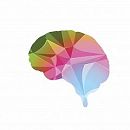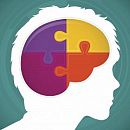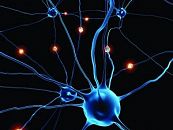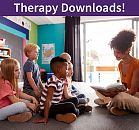Addressing The Cognitive Deficits That Often Accompany Speech And Language Deficits In School-Age Children #e166
Presenter: Martha S. Burns, PhD, CCC-SLP
Current research on disorders of attention, memory, perception, executive function and social skills in school-age children.
School-age children with speech and language deficits often present with cognitive issues that impact literacy and other areas of academic achievement as well as social interaction. This course will review the current research on disorders of attention, memory, perception, executive function and social skills in school-age children. The focus is clinical application with a review of assessments that can be used by SLPs, evidence-based practice, and clinical activities that can be used in treatment sessions or in the classroom.
Course is offered for 0.2 ASHA CEUs – 2 Contact Hours.
Course Overview – Run Time: 2:23:22
- Part I: Disorders of Attention.
- Part II: Disorders of Perception.
- Part III: Assessments.
- Part IV: Evidence-based intervention for attention and memory.
- Part V: Evidence-based intervention for social skills.
- Part VI: Evidence-based intervention for executive function.
– C.G., prior course participant
Read more comments about this course!
The content of this online CE course does not focus exclusively on any specific proprietary product or service. Presenter financial and non-financial disclosures may be found in the Presenter & Disclosures area.
Video PowerPoint presentation with author narration & downloadable handout. Stop and re-start the course at any point. Learners retain access to course content after completion for ongoing reference and review.
Reviews
"Intervention methods for children with attention problems were helpful. I liked the provision of concrete therapeutic ideas." E.B. (May. 2024)
"I found the entire course helpful in providing an overview of the topic with the most practical portions being suggestions for therapy. This course was well organized and comprehensive." W.F. (Mar. 2024)
"I found the focus on working memory, fluency and goal-setting especially useful in terms of having immediate practical use. I also appreciate the information about overlapping conditions, particularly auditory processing disorders, attentional challenges, dyslexia, and autistic spectrum disorders. I liked the up-to-date information on the neurological foundations for cognition, theory of mind, social communication, etc. The presentation was comprehensive, well-paced, and clear. Dr. Burns has a wonderful way of giving practical explanations of how the brain works with examples of behavior that one might see when the brain is not working optimally." D.D. (Jan. 2024)
"I liked the tasks to improve attention. Lots of evidence and research." A.E. (Dec. 2023)
"Beneficial strategies for increasing classroom attention. Very informative; good mix of information." B.P. (Dec. 2023)
"The general discussion about how ADD/ADHD are related to other disorders was very helpful! I enjoyed learning about the evaluation techniques!" K.O. (Dec. 2023)
"Good overview of working memory, add/adhd, executive function, and auditory processing with suggestions for treating each deficit. Goal setting for major projects with older students was beneficial - teaching them to plan and organize in small increments to meet objectives along the way rather than all at once." S.S. (Dec. 2023)
"Techniques for increasing working memory as related to following increasingly complex directions and auditory comprehension of sentences and stories. Learned how cognitive functions relate to receptive language skills and the underlying neurophysiology." A.G. (Nov. 2023)
"I work in a school, so all of this information was very beneficial." C.S. (Nov. 2023)
"Learned that training in executive function such as working memory and attention affects brain maturation. And learned that medications do not have long-term effects for ADHD." L.M. (Nov. 2023)
"Very, very useful and helpful. Activities and programs that SLPs can use to target specific skills. I liked all of the information! So informative and thorough." L.H. (Oct. 2023)
"The specific interventions to do in therapy that included both tech activities and physical games were helpful. I liked the research presented." H.M. (Sep. 2023)
"I liked the intervention methods to consider in daily practice. Information was understandable with resources to provide examples and assistance. Neuro brain pathways and their impact on working memory was beneficial to discuss." H.J. (Jul. 2023)
"I really appreciate the treatment ideas. I can easily start to implement these in my practice, especially with my concussion population." K.W. (Jun. 2023)
"I found this entire presentation to be beneficial to my practice. The presenter was very knowledgeable about the topic and provided a wealth of information to be integrated into daily practice." M.H. (Jan. 2023)
"I appreciated all of the online resources that she provided for treatment options. I really appreciated the research specific to medications as I feel children are over diagnosed and overmedicated with ADD/ADHD in my experience." S.B. (Dec. 2022)
"I liked the therapy suggestions for targeting working memory and social skills." A.L. (Nov. 2022)
"Plenty of useful resources. I liked the suggestions to enhance classroom listening activities." C.H. (Nov. 2022)
"The organization was very conducive to learning. The coverage of attention and memory are hugely applicable to my school-based practice." J.Z. (Oct. 2022)
"Targeting working memory in children who appear to have auditory processing issues was interesting. I liked the treatment suggestions." W.J. (July 2022)
"I liked the therapy ideas suggested for classroom intervention. And the practical approaches for helping students improve their cognitive control in the classroom." M.M. (July 2022)
"The information on working memory will be beneficial for my daily practice." A.M. (June 2022)
"I liked the reminders of brain function when dealing with a student whose behavior may be difficult. The flow of the course was good and stayed relevant throughout." A.A. (May 2022)
"I liked the strategies provided at the end. Course was very detailed and provided where she obtained information." D.A. (May 2022)
"I like that I could take the course at my own pace and reference past slides to enhance my understanding. Comparison of attention, memory and social skills was great, plus the resources and strategies." E.D. (Apr. 2022)
"Pretest helped focus my attention on the content and gave me an idea of the content of the workshop. It gave me an opportunity to think about what I know and preactivate my memory and background knowledge." C.K. (Apr. 2022)
"Neuro, networks, comparisons of attention, auditory processing and memory, how each affect each other in dyslexia and language impairments – all very interesting and beneficial." C.K. (Apr. 2022)
"Looking at students with ADHD differently - seeing their behavior more as a form of self-medicating. I always enjoy courses that focus on the brain - this one was excellent in that respect." K.G. (Apr. 2022)
"I liked the examples of therapy goals and techniques." K.D. (Apr. 2022)
"Discussion of memory assessment and how characteristics of memory difficulties are displayed in the classroom. I also liked the treatment suggestions for classroom teachers and clinicians." B.S. (Apr. 2022)
"The information about drug use for ADHD not being predictive was very interesting as was the data on social issues and executive function neurology and intervention." B.S. (Apr. 2022)
"In general, I have many students who have working memory deficits. I found this course to be very relatable and helpful to my practice." R.S. (Mar. 2022)
"I liked the neurological research and brain structure lecture. And how the neurological considerations were shown to directly impact the child's functional activities in classroom settings." A.P. (Mar. 2022)
"Course was beneficial in learning ways to improve assessment and research based treatment to improve children's comprehension and overall functioning." K.K. (Mar. 2022)
"I liked the thorough information that she included on the slides so that I can go back and reference them when needed. And the examples of how to incorporate things in the classroom and how to better set goals to increase the success of students with cognitive deficits." M.M. (Feb. 2022)
"I appreciated her discussion of how to use the information in a school environment, as that is where I am working currently. I appreciated her ideas regarding how to enhance cognitive control in the school setting. I appreciated her review of anatomy throughout." S.K. (Feb. 2022)
"The effects of noise on degradation of sensory cortex development - I would like to learn more about this." S.M. (Jan. 2022)
"I liked everything – the assessments, medications, interventions and multiple examples. And that you can rewind to process what was being said at your pace." H.F. (Dec. 2021)
"I appreciated all the easily accessible references and materials for intervention – the quantity of therapy activities suggested." H.B. (Dec. 2021)
"I liked the information about working memory and improvements leading to improvements in problem solving." A.S. (Dec. 2021)
"Very scientific, and evidence based info provided clearly and concisely." S.M. (Dec. 2021)
"This course provided a great refresher of content in this area of the field." R.W. (Dec. 2021)
"I found the testing suggestions to be very helpful. I thought it was informative and well paced." J.W. (Nov. 2021)
"I liked Dr. Burns' certainty in the info she presents and that it is all research based." C.H. (Oct. 2021)
“I found it all to be beneficial for my daily practice. It is so important to understand the neurological components in dealing with cognitive deficits! This is information that anyone who is working with students should know and be exposed to. It truly was one of the most beneficial and informative courses I have ever taken. The course exceeded my expectations. I loved it! She was an excellent speaker and very informative! Loved it.” C.G. (Oct. 2021)
“It was interesting to learn how the different parts of the brain affect attention, executive functions, social skills, and language.” M.W. (Sept. 2021)
“This course provided so much information, from etiology to assessment, and treatment. I will use this as a reference for my students with ADD and auditory processing. I learned that working on working memory has definite benefits.” E.M. (Aug. 2021)
"The presenter presented the material in a well-organized manner and I enjoyed the activities to focus on cognition." C.R. (Aug. 2021)
"Development of social skills from birth to preschool, disorders of perception-speech sound development & noise issues are helpful for my daily practice." T.W. (Aug. 2021)
"I appreciated the discussion of the physiology of the different attention networks." E.L. (Aug. 2021)
"I liked the memory activities and the information on auditory processing in general. This workshop really challenged my understanding on cognitive struggles and ways to address such problems at the elementary level." G.G. (Jul. 2021)
"Differentiating between ADHD, ADD, APD is beneficial for my daily practice." S. M. (Jun. 2021)
“The neuro review was helpful, but the focus on therapy was wonderful. I felt it was equally balanced.” J.G. (Apr. 2021)
“I liked that this course differentiated between disorders and provided areas to work on and materials to utilize in therapy.” E.M. (Feb. 2021)
“I love the connection between the brain areas on the various types of difficulties exhibited. Sometimes you can forget about those scientific backings when working day to day. It also helps me to stop and think about what is going on in the brain that might be causing the different difficulties.” C.K. (Feb. 2021)
“The speaker was very knowledgeable and interesting. She understandably explained topics - making connections to previously covered information.” C.G. (Jan. 2021)
“I liked everything! It truly is one of the most beneficial and informative courses I have ever taken - Thank you!!” T.G. (Jan. 2021)
Course Objectives
- Identify and assess school-age children at risk for attention problems that will interfere with academic success.
- Apply research on memory to identify different types of memory problems which can co-occur with speech-language or sensorimotor problems.
- Show how to differentially diagnose problems with working memory and long-term memory problems.
- Identify and assess school-age children at risk for executive function and social problems that will interfere with academic success.
- Describe evidence-based clinical and in-classroom interventions for school-age children with attention problems that may co-occur with speech and language or sensorimotor problems.
- Describe evidence-based clinical and in-classroom interventions for school-age children with working memory problems that may co-occur with speech and language or sensorimotor problems.
- Describe treatment goals that include social and executive functions.
Presenter & Disclosures

Speaker Disclosures:
Financial — Martha Burns is a presenter of online CEU courses sponsored by Northern Speech; receives royalty payments.
Financial — Martha Burns is a paid consultant for Scientific Learning Corporation.
Nonfinancial — Martha Burns has no relevant nonfinancial relationships to disclose.
Intended Audience / Accreditation

This program is offered for 0.2 ASHA CEUs (Intermediate Level; Professional Area).

Intended Audience
- Speech-Language Pathologists
ASHA CEUs: NSS online courses are registered with ASHA and are offered for ASHA CEUs. The number of ASHA CEUs is noted above. Note that 0.1 ASHA CEU = 1 contact hour = equals 1 CEE.
ASHA CE Registry: During the enrollment process, if you select to receive ASHA credit for this course and if you provide your ASHA number, NSS will automatically submit your CEU information to the ASHA CE Registry after successful course completion (80% on post test). This submission happens once per month, during the first week of the month. For example, if you complete your course on November 7th, NSS will submit all November online course CEUs to ASHA during the first week of December. When ASHA inputs the information into their database, they will mark the course as completed on the last day of the month in which it was completed, so November 30th using this example. The certificate of completion available for you to print immediately, however, will reflect the actual completion date, November 7th in this example. Due to ASHA processing procedures please allow 2-3 weeks, from the submission date, for the course to appear on your ASHA transcript.
ASHA CEUs: Attendees must meet at least one of the following conditions in order to be eligible to earn ASHA CEUs:
- Current ASHA Member.
- ASHA Certificate of Clinical Competence (CCC) Holder.
- Licensed by a state or provincial regulatory agency to practice speech-language pathology (SLP) or audiology.
- Credentialed by a state regulatory agency to practice SLP or audiology.
- Credentialed by a national regulatory agency to practice SLP or audiology.
- Engaged in a Clinical Fellowship under the supervision of an individual with their ASHA CCC.
- Currently enrolled in a master's or doctoral program in SLP or audiology.
If an attendee is not an ASHA member or CCC holder but meets any of the above criteria, they may inform the ASHA CE Registry of their eligibility by visiting this site.
Licensing Boards: Most state licensing boards DO accept CEUs earned online (usually classified as home-study credits). Some state boards do, however, place a limit to the number of credits that can be earned via home study/online courses. For the most current information, we suggest that you contact your licensing board or agency to verify acceptance policies and/or any credit limits related to home-study courses prior to registering for this course.
Additional accrediting agencies by which Northern Speech is an approved CE provider:
- California: NSS is approved as a provider of continuing education by the California Speech-Language Pathology & Audiology Board. Provider #PDP4. Online CEU limits may apply; please contact SLPAHADB for current online CEU acceptance policies.
- Iowa: NSS is approved as a provider of continuing education by the Iowa Board of Speech Pathology and Audiology Examiners. Provider #169.
- Kansas: NSS is approved as a provider of continuing education by the Kansas Department of Health and Environment. Provider #LTS-S0005.
- Florida: NSS is approved as a provider of continuing education by the Florida Speech-Language Pathology and Audiology Board. Provider #SPA-026.
- New Jersey: NSS is approved as a provider of continuing education by the New Jersey Department of Education. Provider #1654.
Frequently Asked Questions
Customer Support: Please phone 888.337.3866 or email info@northernspeech.com.
Course Completion Timeframe:
You have unlimited time to complete our online courses. You may log off and log on as often as you’d like to in order to complete all sections of a course.
However, completion dates are based on Eastern Standard Time. Therefore, if you need your CEUs by a certain date, be sure to complete the course test before 11:59pm EST on that date. For example, if you need CEUs before January 1st, you will need to complete the course test before 11:59pm EST on December 31st.
Content Access:
Access to course materials and content does not expire, even after completing the post test. You may continue to review course material by logging into your NSS account, clicking the My Online Courses tab, and then viewing your desired course.
Certificate of Completion:
On successful completion of the post test (80%), a certificate will be immediately available for download and/or printing. This certificate will include your name, date of completion (based on Eastern Time Zone, USA/Canada), and number of contact hours (CEUs / CEEs). Please note that CEUs are awarded on the date of successful test completion, not the date of course enrollment. Please ensure that you successfully complete the post test prior to any licensure renewal dates.
ASHA CE Registry Submission:
During the enrollment process, if you select to receive ASHA credit for this course and if you provide your ASHA number, NSS will automatically submit your CEU information to the ASHA CE Registry after successful course completion (80% on post test). This submission happens once per month, during the first week of the month. For example, if you complete your course on November 7th, NSS will submit all November online course CEUs to ASHA during the first week of December. When ASHA inputs the information into their database, they will mark the course as completed on the last day of the month in which it was completed, so November 30th using this example. The certificate of completion available for you to print immediately, however, will reflect the actual completion date, November 7th in this example. Due to ASHA processing procedures please allow 2-3 weeks, from the submission date, for the course to appear on your ASHA transcript.
Purchase Orders:
Purchase orders are currently not accepted for online orders, if you wish to submit a purchase order please do so at info@northernspeech.com or fax to 888-696-9655.
What is an Online Course?
Our Online Courses consist of video, audio, and/or text content and are offered for ASHA CEUs. Unlike a webinar, which requires participants to be logged on and at a computer at specific times, our Online Courses are available to you at any time, from any device, via your NorthernSpeech.com online account. You may work at your own pace and start and stop your course as you wish. Your course will conclude with a short post test. On successful completion of the post test (>80%), a printable certificate of completion is presented to you.
Receiving CEUs:
Northern Speech is an ASHA CE Provider and our online courses are registered with ASHA and offered for ASHA CEUs. Please note that successful completion of the online post test is required prior to the awarding of CEUs. Please contact your state licensing board for acceptance policies related to CEUs earned online. Please note that courses offered for university students are not applicable for CEUs.
Registering for an online course:
You may browse all online courses by clicking the Continuing Education tab above, then Online Courses. Once you find a course, click Enroll Now, and you will be asked to either log into your existing Northern Speech account or create a new online account. Once you’ve entered your account information and provided your credit card payment, your course will be immediately available to you.
Accessing your purchased course or returning to a purchased course:
You will be able to access your online course by logging into your Northern Speech account and then clicking the My Online Courses tab on your profile screen. Click the course you would like to start or to resume. From there, proceed through the course sections until you are ready to complete the post test. You do not have to complete your course all at once. You may log on and off as you wish.
Testing requirements:
Each online course concludes with a post test consisting of multiple choice or true & false questions. Scores of 80% or greater are required for successful course completion and awarding of CEUs. You may revisit course materials and retest as needed to achieve a passing score.
Number of CEUs offered:
We offer courses from 1 to 21 contact hours. Each course will note the number of CEUs offered. Please note that 0.1 CEU = 1 contact hour = 1 CEE.
State licensing boards and online CEUs:
NSS is an ASHA CE Provider and most state licensing boards DO accept ASHA CEUs earned online (usually classified as home-study credits). Some boards do, however, place a limit to the number of CEUs that can be earned via home study/online courses. For the most current information, we suggest that you contact your licensing board or agency to verify acceptance policies and/or any CEU limits related to home-study courses prior to enrolling in an online course.
Course formats:
Our course formats include: text, audio, video, and PowerPoint with author narration. Each course will note the format on the course description page. Most courses include closed captioning.
Course handouts:
Most of our online courses provide a link to download the accompanying handout as a PDF file.
Group discounts:
Groups of 3 or more are eligible for a 20% discount on each registration on most of our online courses. To receive this discount, registrations need to be processed together via the "Group Rates" tab on the Online Course of your choice.
Computer requirements:
For our online courses to function best, we recommend that you update your computer to include the newest version of your Internet browser (Safari, Chrome, Firefox, Edge, Internet Explorer, etc.) and newest version of your computer's operating system. Also a high-speed Internet connection is recommended (cable or DSL). Speakers or headphones will be required for many of our courses as many contain audio components.
Course Cancellation Policy:
A purchased online course can be exchanged, refunded, or transferred to another individual if contact is made with NSS (via phone or email) within 30 days of purchase and the course materials have not been viewed or downloaded.
Special Needs:
Please click here for any special needs requests, and we will do our best to accommodate them.
| Contact Us |










